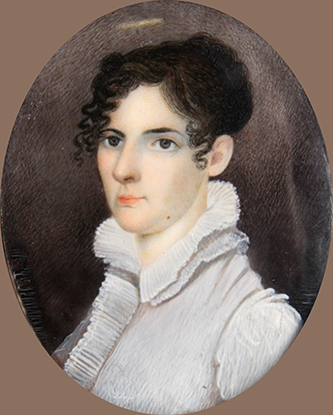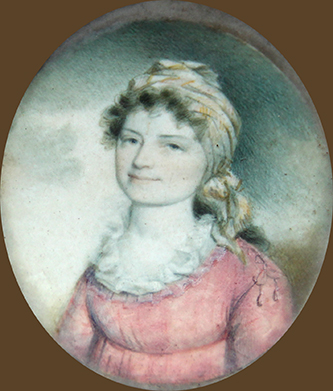8 July 1724–10 May 1787

Richard Cogdell, merchant, planter, and politician, was born in Beaufort, the eldest of fourteen children of George and Margaret Bell Cogdell. Contrary to the popular assumption that the Cogdells were Swiss who arrived with the De Graffenried expedition, the family probably emigrated from Virginia's Eastern Shore. John Cogdell, grandfather of Richard and founder of the North Carolina branch of the family, died in Bath in 1712. His sons, Charles and George, acquired landed estates in several counties and served as justices of the peace in Carteret County. Charles Cogdell also represented Carteret in the provincial assembly and held a commission as captain in the Carteret militia.
Richard Cogdell remained in the Beaufort area of Cartaret County until 1748. He served as an ensign in the militia during the Spanish invasion of Beaufort in 1747 and as deputy sheriff of the county in 1748. He subsequently migrated to Johnston County, where he opened a mercantile business. In 1756 he moved to New Bern to continue his mercantile trade and operate an ordinary from 1757 to 1763. While in New Bern he worshipped regularly at Christ Church, acted as town alderman, and helped to establish a free school in the town. He served as sheriff of Craven County from 1761 through 1764. Cogdell retained close ties with Carteret, however, and represented that county in the assembly in 1766. While a member of the legislature, he proposed bills to replace the New Bern district jail, which had burned, and to improve the navigation of the Neuse River by constructing a canal to join Old Topsail Inlet to the river. Upon the passage of these bills, he was appointed one of several commissioners to supervise the implementation of the projects.
In January 1767, Cogdell resumed his duties as justice of the peace for Craven County, in which capacity he served diligently until his ardent Whig sympathies occasioned his exclusion from the Craven commission of the peace in 1774. During his years as justice, he attended every quarterly session of the Craven County court; he was one of the magistrates who complained to the governor and council that too many justices neglected to attend the court meetings, thereby placing the burden of public business on the conscientious few. While justice of the peace, he advanced money to the county for sundry public expenses and served on committees to inspect guardians' accounts, to examine accounts of the commissioners responsible for building the courthouse, and to superintend the constructing of a temporary jail for the county. Although once accused of partiality in the execution of his magistrate's office, he was "fully and honorably acquitted" by an investigation of the governor and council.

Cogdell relinquished his seat in the assembly in 1767 upon his appointment by the Craven County court as inspector of commodities for the port of New Bern, a post he retained through 1775. In 1772 several charges were advanced against him for neglect of his office as inspector. The court thoroughly examined the allegations and by a split decision continued him as inspector. One of the dissenting justices then moved to impeach Cogdell for misfeasance as magistrate. The court also rejected that proposal, but it is significant that the charge of neglect as inspector and the attempt to impeach Cogdell were rarely duplicated in the county court records of colonial North Carolina.
Cogdell renewed his military endeavors in 1771 by participating in the expedition against the Regulators. As lieutenant colonel of the Craven militia he saw action in the Battle of Alamance. He was subsequently rewarded for his exertions by a promotion to colonelcy. Thereafter he manifested his sympathy for the colony in its struggle to preserve its political integrity in the face of overbearing British authority. He served as one of the Craven County representatives in the first three provincial congresses held at New Bern and Halifax in 1774 and 1775, but he evinced his radicalism most strongly as chairman of the safety committee at New Bern during 1775 and 1776. Under his guidance the committee enforced the Continental association, vigorously suppressed Tory sentiment, and supported the North Carolina war effort. In 1776 the fourth provincial congress appointed Cogdell a member of the state council of safety from the District of New Bern.

During the Revolution, Cogdell served the state as postmaster in New Bern and as judge of the admiralty court at Beaufort in 1776 and 1777. While sitting on the bench, he appointed his eighteen-year-old son, Richard, Jr., marshal of the court, but the boy's age evoked protests that, as a minor, he was ineligible for the office. The state legislature invalidated the appointment and thereafter arrogated to itself the power to determine marshals of the admiralty courts in North Carolina. Cogdell represented the town of New Bern in the House of Commons from 1778 until 1779, when he resigned his seat to accept an appointment by the legislature as treasurer of the District of New Bern. He retained that office until declining health forced him to retire from public life in 1783.
Cogdell married Lydia Duncan of Massachusetts on 8 July 1752. The couple had ten children, five of whom lived to maturity: Ann, who married John Wright Stanly; Margaret, who married James Green; Richard, married to Nancy Ormand; Susannah, married first to Wright Stanly and then to Bela Badger; and Lydia, married to Thomas Badger.